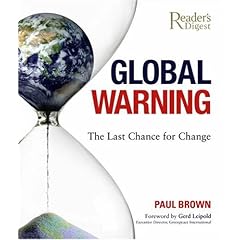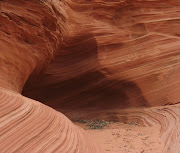 Imagine being on an island with precious family, fast friends and work colleagues with an interesting array of animal and plant life that is shrinking in size
Imagine being on an island with precious family, fast friends and work colleagues with an interesting array of animal and plant life that is shrinking in size  because literally its sinking beneath the pounding waves of the frozen tundra and the humid tropics. Consider a long anticipated honeymoon or a once in lifetime exotic vacationing on lush island paradises with beach fronts becoming the size of postage stamps as the sea reclaims and submerges more and more land each year. From the Kodiak Islands to the Maldives, the sea is erasing beaches, livelihoods and animal habitats at an alarming rate. Water laps up the shores as nations call each other and their own citizens to account for the global catastrophe that is developing right under our pert noses.
because literally its sinking beneath the pounding waves of the frozen tundra and the humid tropics. Consider a long anticipated honeymoon or a once in lifetime exotic vacationing on lush island paradises with beach fronts becoming the size of postage stamps as the sea reclaims and submerges more and more land each year. From the Kodiak Islands to the Maldives, the sea is erasing beaches, livelihoods and animal habitats at an alarming rate. Water laps up the shores as nations call each other and their own citizens to account for the global catastrophe that is developing right under our pert noses.This week, by boat, bus and jetliner, a handful of villagers are converging on Bali, Indonesia, to seek help from the more than 180 nations gathered at the U.N. climate conference. The coastal dwellers' plight, once theoretical, appears all too real in 2007, and is spreading and worsening.Scientists project that seas expanding from warmth and from the runoff of melting land ice may displace millions of coastal inhabitants worldwide in this century if heat-trapping industrial emissions are not sharply curtailed.
A Europe-based research group, the Global Governance Project, will propose at the two-week Bali meeting that an international fund be established to resettle ''climate refugees.''
The sands of Rakova's islands, the Carteret atoll northeast of Bougainville island, have been giving way to the sea for 20 years. The saltwater has ruined their taro gardens, a food staple, and has contaminated their wells and flooded homesteads. The remote islands now suffer from chronic hunger.
 Beautiful Bali is the picturesque setting of a contentious meeting of 10,000 scientists, activists and skeptics meeting under the banner of the UN to discuss the climate change crisis. The IPCC, the UN scientific winning half of the Nobel Peace Prize, is releasing five alarm fire reports that should make people panic about the state of the Earth's health. Enter George Bush who feels no sense of urgency to solve the crisis as his language is more laissez faire on global warming and a need to go slowly as the end of his disastrous terms as US president finally races towards completion.
Beautiful Bali is the picturesque setting of a contentious meeting of 10,000 scientists, activists and skeptics meeting under the banner of the UN to discuss the climate change crisis. The IPCC, the UN scientific winning half of the Nobel Peace Prize, is releasing five alarm fire reports that should make people panic about the state of the Earth's health. Enter George Bush who feels no sense of urgency to solve the crisis as his language is more laissez faire on global warming and a need to go slowly as the end of his disastrous terms as US president finally races towards completion.
"Nobody wants to understate the very real long-term ecological challenges that climate change will bring to rich countries," said lead author Kevin Watkins.
"But the near-term vulnerabilities are not concentrated in lower Manhattan and London, but in flood-prone areas of Bangladesh and drought-prone parts of sub-Saharan Africa.
"Allowing the window of opportunity to close would represent a moral and political failure without precedent in human history."
High tides and flooding are taking a toll. In 2006, Australian researchers reported the sea levels were rising at the rate of one inch per year. Salt ruins the water tables and is diminishing the supply of fresh water for agriculture and personal use around the world. Floridians and those on the coast of Papua New Guinea are facing the same threats from the saltwater - it ruins arable land as more violent weather becomes more prevalent. Event planners the world over are at the mercy of the weather and global warming won't make it easy, especially if an island is involved for a celebratory occasion.

Paul Brown lays out a factual searing case for immediate action in Global Warning: The last chance For Change. This is an October 2007 release.
CONGRATULATIONS Tahira & Richard!











No comments:
Post a Comment